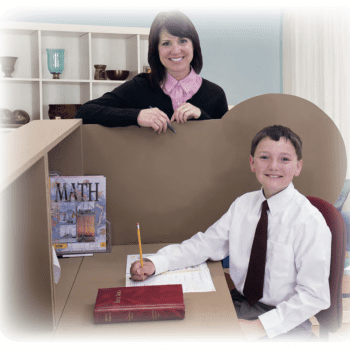By Darcy. Originally posted on Homeschoolers Anonymous.
Sometimes when homeschool alumni tell stories about the way things were — the things we were taught, stuff our parents said, and the teachings we practiced — we are not really believed. Our recollections are met with incredulity, doubt, and outright disbelief. Sometimes, our own parents are the ones telling us “that didn’t happen like that, you aren’t remembering correctly, I never said/did/taught/believed those things”. Those presently homeschooling deny that homeschoolers were like that and tell us “well, you were just part of a small group of extremists”.
It’s hard to be the focus of both gaslighting from the inside and mainstream disbelief from the outside.
We start to think maybe we really aren’t remembering correctly.
But then something happens that helps solidify the fact that we aren’t crazy, we aren’t making shit up, and we can trust our memories. That happened to me this week, and in sharing it with my friends, I think I helped them gain that clarity too.
In cleaning my basement this week, I found an old book that belonged to my parents. A book that we bought at an IBLP Basic Seminar in Seattle, WA, around the time I was 13-14. It is called The Battle of Peer Dependency, by Marina Sears. And when I opened that book and started to read the parts my mom highlighted 16 years ago, it was like stepping into a time machine. I was 14-18 again and all the memories, feelings, situations, even smells from that time hit me full force and in color and clarity.
I’m going to share excerpts from this book, along with some very personal and vulnerable memories of how they were used during my teen years.
My reasons are simple: so that those on the “outside” of the Christian homeschool movement can see the type of emotional and spiritual abuse that we thought was normal. And so those on the inside, both past and present, can see that they were and are not alone.
That we really do remember these things correctly. That they were taught and believed. That they were toxic and abusive.
The book opens with a story of the author’s husband dying in a car accident, and the many sufferings that their family went through, all God’s purpose to show them how to be a family. She alludes to how she would need the lessons learned through suffering for the future of trying to hold their family together, a family threatened by the ominous-sounding “peer dependency”. There is a lot in this first chapter about suffering being God’s will to teach needed lessons.
The entire second chapter is the story of Sears’ fear and her desire to please God and trust him, mostly with her children and their hearts. She sets the stage for a “battle of peer dependency” as something big, bad, ugly, and antithesis to a solid family unit.
Peers are the enemy of children’s hearts; children’s attachment to having friends is the enemy of the family.
This she state quite clearly:
“A child having an independent social life is a cultural phenomenon that has become an accepted practice in Christian homes, resulting in the decay and impotency of the modern Christian family.”
The family v. friends battle is the framework for the entire book.
“Once I entered the battle with peer dependency, a new and different kind of fear gripped my heart. Seeing my children being drawn to the things of this world, I feared that they might never let Christ be the Lord of their lives.”
Peers and independent social lives are the enemy of the family. They are even the enemies of your children’s salvation.
“Even more devastating was the idea that they might never trust Christ as Lord of their lives.”
“For five years I struggled with peer dependency, not understanding what it was. I thought if Dave [her son] would just have more character or love God and his family more, the struggle would disappear…..suffering works to motivate one to trust the Lord…This is an essential principle for the family who will enter the battle to win back the heart of a son or daughter from his or her peers. The reason this is vital is so parents won’t become weary in the midst of the battle.”
Suffering for Jesus, learning lessons, parental sacrifice, creating “character”, setting life up as a battle between family allegiance and having friends are the themes of this book. The next part goes into “The Fight”. She talks about her “battle” with her kids wanting friends. It is framed as a battle for the hearts of your children.
You can either be a strong family and have your children’s hearts, or you can have friends.
The false dichotomy here is pretty obvious, but let’s look at more of her advice and her story.
“As the years have passed, I know why many parents are broken-hearted after giving their lives to see their children follow the Lord. These young people have grown into adults grieving in spirit for their failures and living with the consequences of poor choices they made as teenagers. Sadly, they grow up, marry, and have children of their own, still locked in peer dependency. Many are not understanding that they have a greater desire to please others or be like others, rather than the individual God has created them to be….This is not the only reason for broken young people and broken homes, but it is something that every family will face in varying degree. Understanding the battle of peer dependency and fighting it according to God’s word will decide the outcome and success in children’s lives….
How then, with God as the head of our home, did I lose the heart of one of my children to peer dependency? At first I didn’t even realize what peer dependency meant. In fact, it took me five years to understand the struggle and realize that I was in for the fight of my life….I soon realized the battle of peer dependency was going to cost me my son’s life, and that I needed to understand that it was a life and death battle.”
She goes on (and on and on) dramatically about this “battle” and how peer dependency will cause children to fall away from God, will destroy the family unit, and ultimately the entire nation. The whole chapter reads like a letter of self-inflicted martyrdom by a mother who is whining about how hard she had to fight and what sacrifices she made to keep her family free from the diabolical threat of friends. I’m sure I don’t have to explain why this is utterly ridiculous. I wish I had the words to explain why this sounded so good to many of our parents. I mean, did the homeschooling cult attract control freaks or what?! It would be funny if it didn’t hit such a personal, raw place in my heart. If I didn’t have to explain what these teachings did to so many of us, how they broke us, how we still struggle with healthy peer relationships decades later. If we didn’t have to constantly fight to get people to believe that it really was that bad.
So, what is “peer dependency”? The author explains:
“Webster’s Dictionary defines peer as ‘an equal or member of the nobility’. Dependence is ‘to rely as for support, to place trust, or to be determined’. Therefore, on can define peer dependence as an equal or member of nobility that one can rely upon, places trust in, and will be determined to do so.”
That’s one of the most epic splicing together of definitions that I’ve ever seen. But it’s also a popular method of finding meanings in scripture that Gothard himself uses. Given that this was written by an ATI mom and sold at a Basic Seminar, it’s reasonable to assume she used the same twisted methods of discovering what God has to say as Gothard does. Actually, Gothard’s teachings, catch-phrases, and strange word definitions are prolific throughout this book.
Then we get into the weird hierarchy, “emotions are evil”, and “agreements/strongholds in your heart” teachings that are straight from Gothard:
“When a young person is in a position that they have taken an equal, or someone they think highly of and are determined to trust and rely upon, a parent is in trouble. To place trust in a peer, one must make a choice with their will to believe in that peer. They come to an agreement within their heart that the one whom they trust is worthy of that trust….Throughout the decision process made by the young person, he has involved his mind, will, and emotions. He has processed the peer through his intellect, enjoyed and desired what he as seen, and has made a decision with his will to follow in order to become like his peer. As we continue to define the struggle, there is one more word that must be considered. Through Scripture, one can find the heart defined as the mind, will, and emotions of a person.”
So let’s create a problem, then see the entire world through this problem, write some stuff that sounds a little like legit psychology to those who know nothing about psychology, and then write a book on how you overcame this salvation-threatening problem and saved the souls of your children. Mother as the martyr-savior. This is starting to sound all-too familiar.
“Some may think that being peer dependent is not such a bad thing….however, Scripture is clear that it is a very big deal to God. In fact, if is God’s desire for the father to have his children’s hearts, because in the last days, if they don’t, He will smite the earth with a curse.”
The above quote is really important if you want to understand the undercurrent of the homeschool movement.
Gothard and other homeschool leaders loved the scripture in Malachi 4:6 that said “And he shall turn the heart of the fathers to the children and the heart of the children to their fathers, lest I come and smite the earth with a curse.” And upon this verse they built their cults. This verse was used to promote everything from Vision Forum’s “Biblical Patriarchy” and Family Integrated Churches to the pet doctrines of homeschooling and was very likely part of the foundation for the entire homeschooling movement in the 80’s and 90’s. Homeschooling was supposed to turn the father’s hearts toward their children and vice versa. We were told that this was the only way to promote God’s Kingdom on earth, that this was God’s will for families, that it would be the only way to have a strong nation. This verse was used to justify all kind of cult-like family practices, including not allowing peer friendships and individual social lives, as you see throughout Sears’ book.
In reality, it was about control.
“Another factor involved when a father does not have his child’s heart is the principle that whoever has the heart of your child controls him.”
That’s about the most honest statement I’ve seen in any of these books on “keeping your child’s heart”.
“Peer dependency is the loss of your child’s heart. Dressing, talking, and having the same morals is just the beginning. When a father has lost the heart of his child, the child is torn between the direction and wishes of his parents and that of his friends. In the beginning, he may still desire to please his parents. As time goes on, however, the family will experience great turmoil as the peer dependent young persona grows deeper into dependency and rebellion. People who are peer dependent will find themselves beginning to lower the standards that their parents have tried to instill in them. Even young people who have grown up in very godly homes will suffer the consequences and bondage of peer dependency.”
Please tell me that others can see what is happening here, what is actually being said. “Peer dependency is the loss of your child’s heart” and your control over him, per this author. This reads like a manual of how to isolate your kids and ensure that they will never be exposed to anything other than your own teachings; that they will never learn to think for themselves; that they will never question you and your rules.
These are instructions on how to control your children and to rid them of free will and ensure they turn out to be the people you decide they will be.
This is the goal, very clearly stated, of the homechooling movement that I and my friends grew up in. We were raised in cults, even those of us who weren’t part of ATI or Vision Forum or other organized groups. Our families became cults and operated at such. Complete with ultimate authoritarian control, emotional abuse, religious manipulation, isolation from outside influences, censorship, physical abuse, and absolutely no accountability to anyone else. Our parents were taught that this was how to have a strong family and this was how to ensure their kids turned into the robots we were meant to be.
The author goes on to use all the right catch-phrases: “they want to be like the world instead of like Christ; a quest for pleasure, materialism, and self-gratification; comfortable with the things of the world; children and young people act differently when they are with their peers than they do with adults; some Christian groups have outward evidence of the Christian life, but they are inwardly peer dependent.” On and on and on she goes, setting up this danger, this battle, this threat to families and children. THINK OF THE CHILDREN.
“The particular child who was deeply involved in peer dependency was in complete turmoil in his soul. He would argue and fight against the direction of our family but be repentant at night over his bad attitude and hurtful actions. [He] was in such turmoil that he made the whole family miserable.” [emphasis mine]
Raise your hand if, like me, you were told that your stubbornness and rebellion was making your entire family miserable. If you were told that “if you would just submit to God’s will for our family and stop questioning and being ornery and rebellious, then we wouldn’t be having so many problems.”
Raise your hand if your parents followed teachings that made you, in all practicality, the scapegoat.
Dysfunctional doesn’t even begin to describe the consequences of being raised with such toxic teachings. Try for a minute to imagine being a 14-yr-old, struggling with suicidal imaginations, thinking everyone hates you, even God, that you are worthless because that’s what your parents and their religion taught you, stuck in the turmoil that is puberty, and being told that your family’s problems are because you are making everyone miserable by not submitting. Because that was my life at 14.
“For 5 years I didn’t understand that the reason he didn’t want to go in the direction that God was pointing our family was because he had decided in his heart that he wanted to go in the direction of his friends. So I approached my child and asked him, ‘Do I have your heart?’ “
A bit of advice: don’t ask your child that. There is no way to ask that without manipulation and heaping guilt on a child’s head. I knew I supposed to say yes, that that was what God wanted for me. I also knew that my heart was not at all safe with my mother, that I needed to protect myself. But when an influential adult comes to you, the child, crying that she doesn’t have your heart, that you don’t trust her, that all she ever wanted was to have your heart and a relationship with you, that this is what God wants and don’t you want what God wants….what the hell are you supposed to say?! I said what I thought I was supposed to. “Yes, of course, Mom.” It was a lie, and I knew it was a lie, but a 14-yr-old doesn’t have the tools to combat religious and emotional manipulation. A 14-yr-old just wants to make it stop.
Next in Part 2, with the problem clearly defined and laid out, we will get to the good part: what to do about it. Spoiler Alert: It’s all terrible advice.















